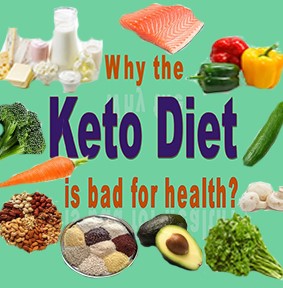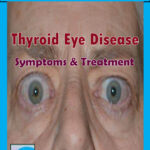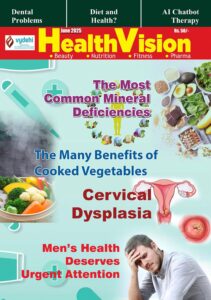Why the Keto diet is bad for health? such restrictive dieting can have extremely harmful effects on the body in the long-term. While following Keto diet for a short period to see quick results, and adopting it as a lifestyle can be extremely detrimental. Further, it is imperative that before following any diet and a particularly controversial one such as the Keto diet, consulting nutritionist is advisable
Today almost every other Instagram post, health and fitness influencers will tell to cut carbs and adopt the Keto lifestyle. Facebook feed, too, might be replete with adulatory posts of how some celebrities have managed to lose bags of extra pounds by adopting the Ketogenic diet. All of this excitement around this mother of fad diets, has probably led people to go the Keto way. After all, what’s there to not love?


But first, let’s really understand what Ketosis and the Ketogenic diet is all about. Ketosis is basically a metabolic state in which body doesn’t have access to its primary fuel source, glucose. It, therefore, burns fats to produce energy in a bid to provide glucose from triglycerides. Ketones, a type of acid, are a by-product of this process. As body burns fats when in ketosis, the Ketogenic diet is aimed at achieving this metabolic state. To this end, the Ketogenic diet is made up primarily of fats and is extremely low in carbohydrates. The Keto diet plan involves getting about 75% of daily calorie in-take from fats, 20% from proteins and only 5% from carbs. Most people on the Keto diet end up having copious amounts of saturated fats such as butter and ghee, and red meats to meet their daily micro-nutrient requirements. While eating fibrous vegetables on the Keto diet, is recommended to avoid fruits as they are high in sugar (read carbohydrate) content.
All of these diet restrictions and the carb cutting definitely results in short-term weight loss, but in the long term is it really healthy to avoid carbs all together? Experts have suggested in unison, that it’s not. In fact, such restrictive dieting can have extremely harmful effects on the body in the long-term.
- Because of the many foods that one is supposed to eliminate as part of the Keto diet, one can end up suffering from severe vitamin and mineral deficiencies. This can gravely impact bone density and can also lead to gastrointestinal disorders, particularly constipation because of eating much less fiber than before.
- Eating more protein than one used earlier, can up the calcium and uric acid levels in the body tremendously, which can result in kidney stones, especially if one isn’t careful about staying properly hydrated. Build-up of uric acid can also lead to gout.
- The most deleterious impact of the Keto diet, however, is related to cardiovascular health. Keto diet encourages to eat all kinds of fats, including full-fat diary, red meats and other saturated fats, which have long been known as highly harmful to the heart as well as to blood cholesterol levels. Having saturated fats in large quantities can increase Low-density lipoprotein (LDL) cholesterol which leads to plaque formation in the cardiovascular system, leaving a high risk of a heart attacks or of strokes.
Enthusiastic supporters of this diet often argue that Keto isn’t all about eating butter and consuming heavy cream, however, most followers of the Ketogenic lifestyle do end up consuming these products in large quantities to make up for all the other food items they are cutting out. In fact, many proponents of the diet, until questioned about heart health will often tell that being able to eat such foods is the best part about it.
While all diets have their positive and negative aspects, the Keto-obsessed camp often tends to be completely oblivious to the harmful effects of such strict carbohydrate reduction in the body. This tendency further adds to the worry of nutritionists and cardiologists who believe that Keto followers need to understand that each food group, including carbs, comes loaded with specific nutrients which the body needs for its healthy functioning and survival. Therefore, no macronutrient should be demonized and all food groups should be consumed in moderate quantities with a focus on eating healthy.


Dr. Amar A. Amale
MBBS, MD, DNB
Cardiologist DocsApp-Medical App,
Bengaluru -560008
Ph: (+91) 11399-62333











